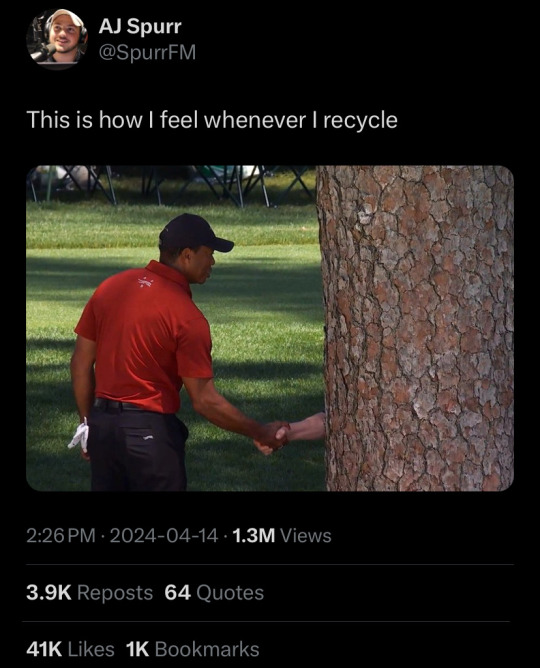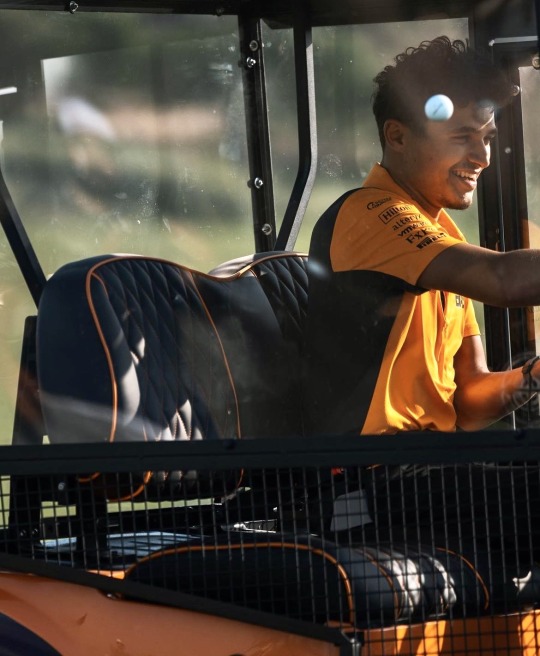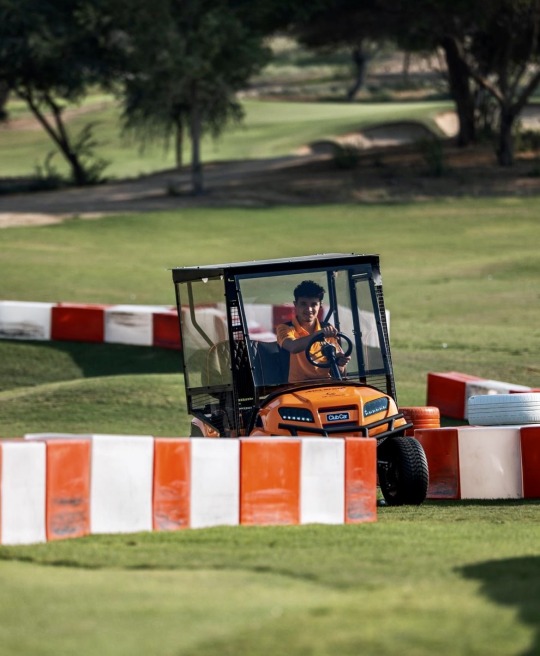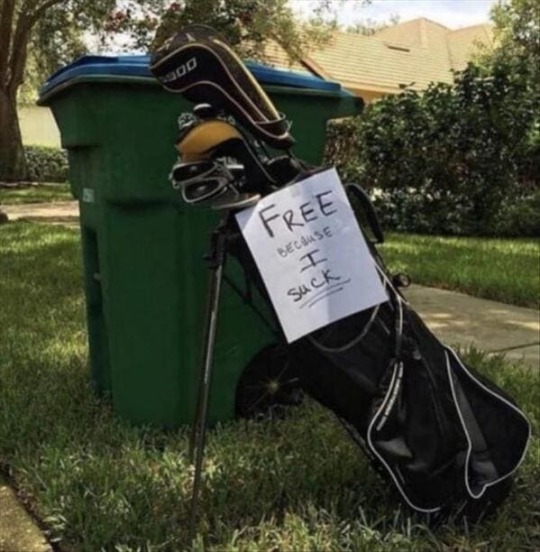#golf funny
Text



so, ruin?
#fnaf#five nights at freddy's#fnaf security breach#fnaf ruin#ruin fnaf#ruin spoilers#fnaf spoilers#fnaf funny#that's what happened#right?#lmao#get this popular like my monty golf post#fnaf gregory#fnaf cassie#my art#zachiedoodles#shitpost
10K notes
·
View notes
Text

i am right
#five nights at freddy's#security breach#fnaf security breach#monty gator#roxanne wolf#montgomery gator#roxy wolf#i mean cmon#roxys attraction is a high speed motorway#montys is fucking GOLF dude#itd be funny if he wasnt even good at it#also theyr besties 4 eva to me
3K notes
·
View notes
Text

1K notes
·
View notes
Photo



(via Lose golf balls pun Coasters (Set of 4) by Bright76) Golf is a game of skill they say. The aim is to sink the ball into the hole using the least moves possible. However that sneaky ball will sink often in the sand, under bushes and in the the water. This double meaning pun will bring smiles to every golf lover.
#findyourthing#redbubble#golf humor#golf pun#bad golfer#golf lover#golf funny#loosing my balls#alot of balls#funny golf quote#eighteen holes#golf merch#golf decor
0 notes
Text


#new york attorney general#judgments#westchester county#donald trump#golf course#private estate#seven springs#state lawyers#judge arthur engoron#trump organization#billionaire#legal bills#third run for the white house#creditor#property recovery#liens#foreclosure#trump tower#40 wall street#central park#mar-a-lago#trump national doral golf club#cook county#illinois#truth social#appeals court#bonding companies#lmao#humor#funniness
334 notes
·
View notes
Text




🎶 it's a gremlin on the golf course 🎶
#lando norris#i tried to be funny#pls sing the caption to the tune of murder on the dance floor#mclaren r u hiring bc i'm here always#n e ways#he's such a little gremlin#BUT BOY DOES HE LOOK GOOD#tw golf#<- this is a joke btw
206 notes
·
View notes
Text

I’d like to think that while some of the time, the one not in control of the body takes a fat nap. However, I also like to think that the times when they *aren’t* asleep, they talk to each other often. Usually, they like to bounce ideas off each other, come up with different schemes, and even give each other advice mid- job ^^
#and sometimes they would see something and just go#Eyo you seeing this shit????#and just point to like Gregory or vanny#“Eyo who lost their kid Eyo?????#sun would probably ask moon to pull pranks while he’s on shift#moon would maaaybe comply#only if it’s funny enough#the daycare was missing so many plastic balls that day#mysteriously they all ended up in gator golf how weird#anyways Monty is banned from the daycare for writing swears on the daycare walls#don’t worry it was after hours and there weren’t any kids around#probably#most likely#fnaf#fnaf fandom#fnaf moon#fnaf sun#sundrop#moondrop
1K notes
·
View notes
Text
Dogs enjoying St. Andrews! ⛳ Follow me for more dogs enjoying classic spots!
#funny#cute#pets#animals#humor#comedy#dogs#jokes#lol#positivity#memes#love#meme#haha#hilarious#life#omg#adorable#family#dogs of tumblr#wholesome#doggo#cute animals#dog#aww#lmao#fun#scotland#golf
64 notes
·
View notes
Note
Don’t know if this is the right place to ask, but could you talk more about zoos? I’ve seen many people say that zoos are inherently exploitative and that we should instead focus on advocating for wildlife preserves, etc., but I’m not sure what to think of that. You seem to know a lot about wildlife protection, so what’s your opinion on this?
There are folks faaaar better than myself to talk about the issues of zoos specifically and I'll try to toss in some sources so you can go and learn more, but let me try and explain my mindset here.
Summary of my opinion on this: BOTH of these things can be poorly managed, and I broadly support both. They should exist in tandem.
I am pro-accredited zoo and am extremely sensitive towards misinformation.
I also do think the best place for animals to be is in their natural environment, but nature "preserves" aren't inherently perfect. They can also be prone to the capitalist (and colonialist) pressures that less informed people believe they're somehow immune to.
Because of the goal of my project being to make the setting of WC accurate to Northwestern England, my research is based on UK laws, ecology, and conservation programs.
On Zoos
On Nature Reserves
An Aside on Fortress Conservation
On Zoos
The legal definition of a Zoo in the UK (because that is what BB's ecological education is based around), as defined by the Zoo Licensing Act of 1981 (ZLA), is a "place where wild animals are kept for exhibition to the public," excluding circuses and pet shops (which are covered by different laws.)
This applies equally to private, for-profit zoos, as well as zoos run by wildlife charities and conservation organizations. Profit does not define a zoo. If there's a place trying to tell you it's not a zoo but a "sanctuary" or a "wildlife park," but you can still go visit and see captive wild animals, even if it's totally free, it's a marketing trick. Legally that is still a zoo in the UK.
(for fellow Americans; OUR definition is broader, more patchwork because we are 50 little countries in a trenchcoat, and can include collections of animals not displayed to the public.)
That said, there's a HUGE difference between Chester Zoo, run by the North of England Zoological Society, which personally holds the studbooks for maintaining the genetic diversity of 10 endangered species, has 134 captive breeding projects, cultivates 265 threatened plant species, and sends its members as consultants to United Nations conferences on climate change, and Sam Tiddles' Personal Zebra Pit.
Sam Tiddles' Personal Zebra Pit ONLY has to worry about the UK government. There's another standard zoos can hold themselves to if they want to get serious about conservation like Chester Zoo; Accreditation. There are two major zoo organizations in the UK, BIAZA and EAZA.
(Americans may wonder about AZA; that's ours. AZA, EAZA, and BIAZA are all members of the World Association of Aquariums and Zoos, or WAZA, but they are all individual organizations.)
A zoo going for EAZA's "accreditation" has to undergo an entire year of evaluation to make sure they fit the strict standards, and renewal is ongoing. You don't just earn it once. You have to keep your animal welfare up-to-date and in compliance or you will lose it.
The benefit of joining with an accredited org is that it puts the zoo into a huge network of other organizations. They work together for various conservation efforts.
There are DOZENS of species that were prevented from going extinct, and are being reintroduced back to their habitats, because of the work done by zoos. The scimitar-horned oryx, takhi, California condor, the Galapagos tortoise, etc. Some of these WERE extinct in the wild and wouldn't BE here if it hadn't been for zoos!
The San Diego zoo is preventing the last remaining hawaiian crows from embracing oblivion right now, a species for which SO LITTLE of its wild behavior is known they had to write the book on caring for them, and Chester zoo worked in tandem with the Uganda Wildlife Authority to provide tech and funding towards breakthroughs in surveying wild pangolins.
Don't get me wrong;
MOST zoos are not accredited,
nor is accreditation is REQUIRED to make a good zoo,
nor does it automatically PROVE nothing bad has happened in the zoo,
There are a lot more Sam Tiddles' Personal Zebra Pits than there are Chester Zoos.
That's worth talking about! We SHOULD be having conversations on things like,
Is it appropriate to keep and breed difficult, social megafauna, like elephants or cetaceans? What does the data say? Are there any circumstances where that would be okay, IF the data does confirm we can never provide enough space or stimulation to perfectly meet those species' needs?
How can we improve animal welfare for private zoos? Should we tighten up regulations on who can start or run one (yes)? Are there enough inspectors (no)?
Do those smaller zoos meaningfully contribute to better conservation? How do we know if they are properly educating their visitors? Can we prove this one way or the other?
Who watches the watchmen? Accreditation societies hold themselves accountable. Do these organizations truly have enough transparency?
(I don't agree with Born Free's ultimate conclusion that we should "phase out" zoos, but you should always understand the opposing arguments)
But bottom line of my opinion is; Good zoos are deeply important, and they have a tangible benefit to wildlife conservation. Anyone who tries to tell you that "zoos are inherently unethical" either knows very little about zoos or real conservation work, or... is hiding some deeper, more batshit take, like "having wild animals in any kind of captivity is unlawful imprisonment."
(you'll also get a lot more work done in regulating the exotic animal trade in the UK if you go after private owners, btw. zoos have nothing to do with how lax those laws are.)
Anyway I'm a funny cat blog about battle kitties, and the stuff I do for BB is to educate about the ecosystem of Northern England. If you want to know more about zoos, debunking misconceptions, and critiques from someone with more personal experience, go talk to @why-animals-do-the-thing!
Keep in mind though, again, they talk about American zoos, where this post was written with the UK in mind.
(and even then, England specifically. ALL UK members and also the Isle of Man have differences in their laws.)
(If anyone has other zoo education tumblr blogs in mind, especially if they are European, lmk and I'll edit this post)
On Nature Reserves
Remember how broad the legal definition of a zoo actually was? Same thing over here. A "nature reserve" in the UK is a broad, unofficial generic term for several things. It doesn't inherently involve statutory protection, either, meaning there's some situations where there's no laws to hold anyone accountable for damage
These are the "nature reserve" types relevant to my project;
(NOTE: Ramsar sites, SACs, and SPAs are EU-related and honestly, I do not know how Brexit has effected them, if at all, so I won't be explaining something I don't understand.)
Local Wildlife Site (LWS)
Selected via scientific survey and managed locally, connecting wildlife habitats together and keeping nature close to home. VERY important... and yet, incredibly prone to destruction because there aren't good reporting processes in place. Whenever a report comes out every few years, the Wildlife Trust says it often only gets data for 15% of all their registered sites, and 12% get destroyed in that timeframe.
Local Nature Reserve (LNR)
A site that can be declared by a district or county council, if proven to have geographic, educational, biodiversity, or recreational value. The local authority manages this, BUT, the landowner can remain in control of the property and "lease" it out
(and boy oh boy, landowners do some RIDICULOUS things)
National Nature Reserve (NNR)
This is probably closest to what you think of when someone says "nature reserve." Designated by Natural England to protect significant habitat ranges and geographic formations, but still usually operates in tandem with private land owners who must get consent if they want to do something potentially damaging to the NNR.
Site of Special Scientific Interest (SSSI) (pronounced Triple S-I)
A conservation designation for a particular place, assessed and defined by Natural England for its biological or geographic significance. SSSIs are protected areas, and often become the basis for NNRs, LNRs, Ramsar sites, SACs, SPAs, etc.
So you probably noticed that 3/4 of those needed to have the private ownership problem mentioned right in the summary, and it doesn't end there. Even fully government-managed NNRs and SSSIs work with the private sectors of forestry, tourism, and recreation.
We live under Capitalism; EVERYTHING has a profit motive, not just zoos.
I brushed over some of those factors in my Moorland Research Notes and DESPERATELY tried to stay succinct with them, but it was hard. The things that can happen to skirt around the UK's laws protecting wildlife could make an entire season of Monty Python sketches.
Protestors can angrily oppose felling silver birch (a "weed" in this context which can change the ecosystem) because it made a hike less 'pretty' and they don't understand heath management.
Management can be reluctant to ban dogs and horses for fear of backlash, even as they turn heath to sward before our eyes.
Reserves can be owned by Count Bloodsnurt who thinks crashing through the forest with a pack of dogs to exhaust an animal to death is a profitable traditional British passtime.
Or you can literally just pretend that you accidentally chased a deer for several hours and then killed it while innocently sending your baying hounds down a trail.
(NOTE: I am pro-hunting, but not pro-animal cruelty.)
The Forestry Commission can slobber enthusiastically while replacing endangered wildlife habitats with non-native, invasive sitka spruce plantations, pretending most trees are equal while conveniently prioritizing profitable timber species.
I have STORIES to tell about the absolute Looney Tunes bullshit that's going on between conservationists and rich assholes who want to sell grouse hunting access, but I'll leave it at this fascinating tidbit about air guns and mannequins which are "totally, absolutely there for no nefarious reason at all, certainly not to prevent marsh harriers from nesting in an area where they also keep winding up mysteriously killed in illegal snares, no no no"
BUT. Since Nature Reserve isn't a hard defined legal concept, and any organization could get involved in local conservation in the UK, and just about anyone or anything could own one... IT'S CHESTER ZOO WITH THE STEEL CHAIR!!
They received a grant in 2021 to restore habitat to a stretch of 10 miles extending outside of their borders, working with TONS of other entities such as local government and conservation charities in the process. There's now 6,000 square meters of restored meadow, an orchard, new ponds, and maintained reedbeds, because of them.
It isn't just Chester Zoo, either. It's all over the UK. Durrel Wildlife, which runs Jersey Zoo, just acquired 18,500 acres to rewild in Perthshire. Citizen Zoo is working with the Beaver Trust to bring beavers back to London and is always looking for volunteers to help with their river projects, and the Edinburgh Zoo is equipped with gene labs being used to monitor and analyze the remaining populations of non-hybrid Scottish Wildcats.
The point being,
Nature preserves have problems too. They are not magical fairy kingdoms that you put up a fence around and then declare you Saved Nature Hooray! They need to be protected. They need to be continuously assessed. They are prone to capitalist pressures just like everything else on this hell planet. Go talk to my boy Karl he'll give you a hug about it.
"Nature Preserves" are NOT an "alternative" to zoos and vice versa. They do not do the same thing. A zoo is a center of education and wildlife research which displays exotic animals. A nature preserve is a parcel of native ecosystem. We need LOTS of nature preserves and we need them well-managed ASAP.
We could never just "replace" zoos with nature preserves, and we're nowhere near the amount of protected ecosystem space to start thinking of scaling back animals in captivity. Until King Arthur comes out of hibernation to save Britain, that's the world we live in.
An Aside
My project and my research is based on the isle of Great Britain. The more I learn about the ecosystems that are naturally found there, the more venomously I reject the old lie, "humans are a blight."
YOU are an animal. You're a big one, too. You know what the role of big animals in an ecosystem are? Change. Elephants knock over trees, wolves alter the course of rivers, bison fertilize the plains from coast-to-coast. In Great Britain, that's what hominids have done for 900,000 years, their populations ebbing and flowing with every ice age.
Early farming created the moors and grazing sheep and cattle maintain it, hosting hundreds of specialist species. Every old-growth forest has signs of ancient coppicing and pollarding, which create havens for wildlife when well-managed. Corn cockle evolved as a mimic of wheat seeds, so farmers would plant it over and over within their fields.
This garbage idea that humans are somehow "separate" from or "above" nature is poison. It's not true ANYWHERE.
It contributes to an idea that our very presence is somehow damaging to natural spaces, and to "protect" it, we have to completely leave it alone. NO! Absolutely NOT! There are places where we have to limit harvesting and foot traffic, but humans ALWAYS lived in nature.
Even the ecosystems that this mindset comes from rejects it, but this shit doesn't JUST get applied to British people who become alienated and disconnected from their surroundings to the point where they don't know what silver birch does.
It's DEADLY for the indigenous people who protect 80% of our most important ecosystems.
It's a weapon against the Maasai people, stopped from hunting or growing crops on their own land. It's violence for 9 San hunters shot at by a helicopter with a "kill poachers on-sight" policy, as one of the world's LARGEST diamond mines operates in the same motherfucking park. The Havasupai people are kept out of the Grand Canyon that they managed for generations because they might "collect too many nuts" and starve squirrels, Dukha reindeer herders suddenly get banned from chopping wood or fishing, and watch wolves decimate their animals in the absence of their herding dogs.
It's nightmare after nightmare of human displacement in the name of "conservation."
That all ties back to that mindset. This idea that nature is pure, "pristine," and should be totally untouched. There are some starting to call it Fortress Conservation.
You can't begin to understand the criticisms of modern conservation without acknowledging that we are still living under the influence of capitalism and colonialism. Those who fixate on speaking for "animals/nature/trees who don't have a voice" often seem to have no interest in the indigenous people who do.
Listen. There's no simple answer; and the solution will vary for each region.
Again, my project is within the UK, one of the most ecologically devastated areas in the world. There are bad zoos that the law allows a pass. There are incredible zoos that are vital to conservation, in and outside of the country. There's not enough nature preserves. The best ones that exist are often exploited for profit.
I hope that my silly little blog sparks an interest in a handful of people to understand more about their own local ecosystems, and teaches folks about the unique beauty even within a place as "boring" as England.
But, my straightforward statement is that I have no patience for nonconstructive, broad zoo slander that lumps together ALL of them, and open contempt for anyone who tries to sell nature preserves like a perfect, morally superior "alternative." We need them BOTH right now, and we need to acknowledge that zoos AND preserves have legal and ethical issues that aren't openly talked about.
#ALSO THAT GUIDE IVE BEEN WORKING ON IS DONE#Im just waiting for the input of the sensitivity readers bc I made a whole section on--#How ableis m might express in the different clans#And part of it became a thunder-callout post lmaooooo#Also this zoo doc has been sitting competed in my drafts for a while#All this to say that uh. I hope the strange place they visit in the upcoming se is not a zoo :J#I will hit it with a golf club if it is <3#Leaning heavily towards the 'oh no two DEMIGODS ended up in a zoo' idea#Which is objectively funnier#And you know what else is objectively funny. When these posts break orbit and then ppl are surprised that i am a kitty cat blog#Hal. It's about Cats.#Bone Babble
97 notes
·
View notes
Text




Michael Pitt as Paul
FUNNY GAMES (2007) dir. Michael Haneke
#funny games#michael pitt#myedits#cinematv#horroredit#userfilm#filmedit#cinemapix#moviegifs#fyeahmovies#dailyflicks#userbbelcher#userstream#chewieblog#filmgifs#doyouevenfilm#userbrittany#horrorfilmgifs#societyclub#filmtvcentral#usernastya#him and his comfort golf club
104 notes
·
View notes
Text
Lil goofy ookie pookie golf ball is here!! (•̀ᴗ•́) ❤︎ [old]


#your boyfriend fanart#your boyfriend#peter your boyfriend#digital art#pookie#yb game#yb fandom#yb art#yb peter#yb fanart#yandere visual novel#visual novel#illustration#vn#shitpost#idk how to tag this#my beloved pookie golf ball#peter dunbar#funny drawing
76 notes
·
View notes
Text
Did you know that King K Rool’s belly and chest are made out of giant yellow golf balls in the Donkey Kong Country cartoon?



#king k rool#king k. rool#golf#golf ball#golf balls#donkey kong#donkey kong country#dkc#memes#funny memes#did you know gaming#did you know#funny#yellow
56 notes
·
View notes
Text
So, Max literally overslept and missed the whole padel tournament.
You're gonna sleep on the couch tonight.
#lestappen#he's so funny#or maybe he's afraid that he'll lose to charles again#and now charles left padel for golf
96 notes
·
View notes
Text

33 notes
·
View notes
Text


mvdp not following carlos sainz and only liking the pic because tadej’s in it. I know what you are
#hes so funny#ik he wants to thirst trap lando norris into playing with him everytime he posts a story while hes golfing#cycling#chatter
35 notes
·
View notes
Text

Cadillac is the automotive equivalent of a codpiece.
National Geographic Magazine - April 1970
#1970#cadillac#1970s cars#golf#vintage ads#vintage ad#advertising#advertisement#1970s#1970s ad#1970's#1970's ad#funny#humor#humour
37 notes
·
View notes